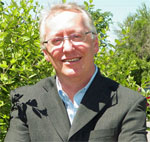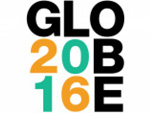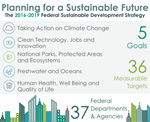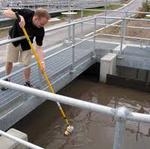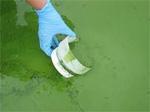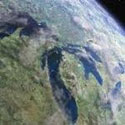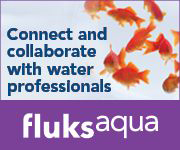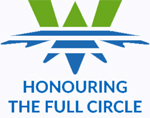| March 31, 2016
|
In This Issue |
|
CWWA News
|
|
|
Federal Initiatives
|
|
|
National News
|
|
|
Provincial News
|
|
|
Upcoming Events
|
|
|
Snippings and Clippings
|
|
It is certainly a busy (and exciting) time in the water sector in Canada. 2016 should prove to be an important year. The new federal government seems to have set a new tone, recognizing the importance of water and wastewater to our national economy and directing significant funds toward our industry. This discussion started during the election and strengthened in each speech from the new Prime Minister and his Minister of Infrastructure and Communities, the Hon. Amarjeet Sohi. This culminated in the recent budget announcements – full of optimism for the water sector. See my review of the budget in this e-Bulletin.
|
We are excited to announce that registration for the National Water and Wastewater Conference is now open! Be sure to register before June 1, 2016 to secure our best rates!
I was finally able to attend my first GLOBE Series event and it was everything, and more, than I expected. Held in Vancouver every other year, this year’s event ran from March 2nd to 4th. It was billed as the Leadership Summit for Sustainable Business and it lived up to its billing – attracting environmental leaders from across the country and from around the world.
|
The Window on Ottawa is CWWA’s core event featuring presentations from federal departments and national organizations on new initiatives and regulatory developments on a national level. This is your chance to hear what’s coming down the pipe from the federal government.
|
During the last Infrastructure Roundtables in 2013, we suggested that, "an infrastructure plan had to be more than just another grant program. When we argued for infrastructure support before the previous federal government, we asked for water to be identified as a priority and suggested that asset management be a prerequisite. We expressed concerns for the short-term nature of grant programs and the competitive municipal race to get the funds. We called for programs to support smaller communities to move toward eventual self-sufficiency. We had asked that a more long range vision be developed that recognized economic impact and encouraged innovation. We also asked for funds to be directly targeted to First Nations communities. That government announced $10 billion over 10 years and set no priorities. If they ever gave examples, they mentioned roads and bridges and transit...never water.
The Federal Government is consulting on the 2016-2019 Federal Sustainable Development Strategy. This Strategy lays out the federal government’s environmental sustainability agenda including the goals and targets they will strive to meet, and plans to achieve them.
|
Environment and Climate Change Canada published in the February 20, 2016, edition of Canada Gazette Part I a notice stating that the Minister of the Environment had concluded with Saskatchewan an agreement covering the administration and enforcement of the Wastewater Systems Effluent Regulations (WSER) in the province.
|
Environment and Climate Change Canada (ECCC) posted online, February 9, 2016,Proposed Regulations for Microbeads in Personal Care Products Used to Exfoliate or Cleanse.
|
The Federal-Provincial-Territorial Committee on Drinking Water is updating the drinking water guideline for cyanobacterial toxins. As part of this review, a consultation process is taking place.
|
U.S. Environmental Protection Agency Administrator, Gina McCarthy, and Canada’s Environment and Climate Change Minister, Catherine McKenna, announced February 22, 2016, that the two countries have adopted targets under the Great Lakes Water Quality Agreement to reduce phosphorus entering affected areas of Lake Erie by 40 per cent. e committed to develop domestic action plans no later than February 2018, to help meet the new targets.
|
The Canadian Council of Ministers of the Environment (CCME) released in February 2016, a Guidance Manual For Developing Nutrient Guidelines for Rivers and Streams. The guidance manual provides a set of protocols to facilitate the development of nutrient guidelines for streams and rivers across Canada that are scientifically defensible and that take into account the natural diversity of watercourses.
|
The Weekly investigates if flushable wipes are a complete load of .. more flushable things.
|
Ontario’s Ministry of Energy is proposing a regulation, under the Ontario Energy Board Act, 1998. To implement an energy and water reporting and benchmarking (EWRB) regulatory requirement for commercial, multi-unit residential and some industrial buildings 50,000 square feet and above. Most industrial buildings, i.e. manufacturing facilities, and all agricultural facilities will be excluded.
|
View our calendar of events for what's on tap in 2016.
|
Join hundreds of your colleagues from the water industry as they gather in Calgary for the 68th Annual Western Canada Water Conference. From optimizing infrastructure to full circle planning, we all play a role in preserving our water resources for future generations. The conference brings together water professionals to exchange ideas and share experiences, challenges and successes around this year’s theme "Honouring the full circle." We are excited to present renowned public policy advisor and EPCOR Chair for Water and Climate Security Bob Sanford as this year’s keynote speaker.
|
Water Canada The City of Mississauga’s new stormwater levy will begin to appear on Region of Peel water bills for Mississauga properties in March. The stormwater charge amount that will appear on the bill is based on the daily rate for the property, applied since January 1, 2016.
|
Water Canada Clearford Water Systems Inc. has won the Ontario Onsite Wastewater Association’s 2016 Corporate Innovation Award, at OOWA’s 17th Annual Conference held in Kingston last week. The award was presented to Clearford in recognition of its innovative Pay for Performance (P4P) financing model.
|
Winnipeg free press Dentist Larry Levin has made his pitch about the importance of adding fluoride to drinking water several times in recent years to city councils voting on the controversial issue. He has won some and lost some. Levin, a past president and current vice-president of the Canadian Dental Association, believes more communities are deciding against fluoridation.
|
AWE Lessons learned during Australia’s worst drought on record are helping California through its own water crisis. A new report released today shows that strategies developed and mistakes made during Australia’s decade-long millennium drought provide a powerful resource for California, as the state enters its fifth year of severe drought.
|
The treatment of municipal wastewaters in small northern communities across Canada can be challenging because of harsh climatic conditions, difficult logistical and operational circumstances, competing demands on limited financial resources, and challenges associated with staffing treatment plants in remote communities. These communities are reliant on lagoon systems as a primary method for wastewater treatment.
|
siwi.org Professor Joan Rose of the USA is named the 2016 Stockholm Water Prize Laureate for her tireless contributions to global public health: in assessing risks to human health in water and creating guidelines and tools for decision-makers and communities to improve global health.
|
WaterAid Canada To celebrate World Plumbing Day, the Canadian Institute of Plumbing and Heating (CIPH) has awarded WaterAid Canada with the inaugural National Water Wise Award. This marks the beginning of a new awards program developed to recognize outstanding efforts to improve our relationship with water.
|
Government of Newfoundland & Labrador The Department of Environment and Conservation honoured two municipal water operators for their services with Water Operator of the Year Awards. Dale Walsh from the Town of Bay de Verde and Harold Legge from the No’kmaq Village (Flat Bay Band) received the awards today during the 15th Annual Clean and Safe Drinking Water Workshop in Gander.
|
Canadian Underwriter The province of British Columbia has announced $16.6 million in funding toward a flood mitigation project in Richmond that will upgrade multiple pump stations.
|
Northern Life The City of Sudbury has decided how it's going to spend the $2.3-million provincial grant it received late last month for nine watershed studies over the next two years. Ramsey Lake, a main source of drinking water in the city, was already announced as the first to be studied. Meeting Tuesday, city council named the other eight: seven watersheds along Junction Creek, as well as Whitewater Lake in Azilda.
|
Barrie Examiner Barrie has new 'drinking water protection zone' road signs, which are the new provincial standard. The city says they're to create public awareness that certain activities in these areas can have an impact our water supplies. The signs will be placed within the most vulnerable source water areas - near municipal wells and areas around surface water intakes - during the next few weeks.
|
CBC Canada's crumbling infrastructure is expected to be at the forefront of Tuesday's federal budget. Topping the list of the Liberals' campaign promises is $60 billion over 10 years for infrastructure projects — nearly double what the previous Harper government planned to spend.
|
The Globe & Mail A passing mention by Montreal’s mayor that plastic-bottled water is next on the city’s environmental to-do list has caught the industry’s attention. After moving to ban plastic bags by 2018, Mayor Denis Coderre hasn’t announced any firm game plan on the bottle issue. "But the debate is important," Coderre said recently. "We need to have that debate on plastic."
|
|
| |
|




